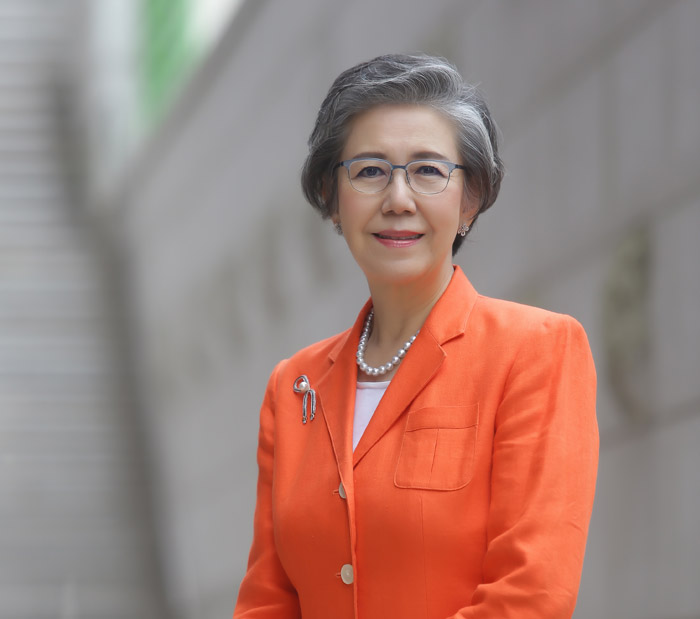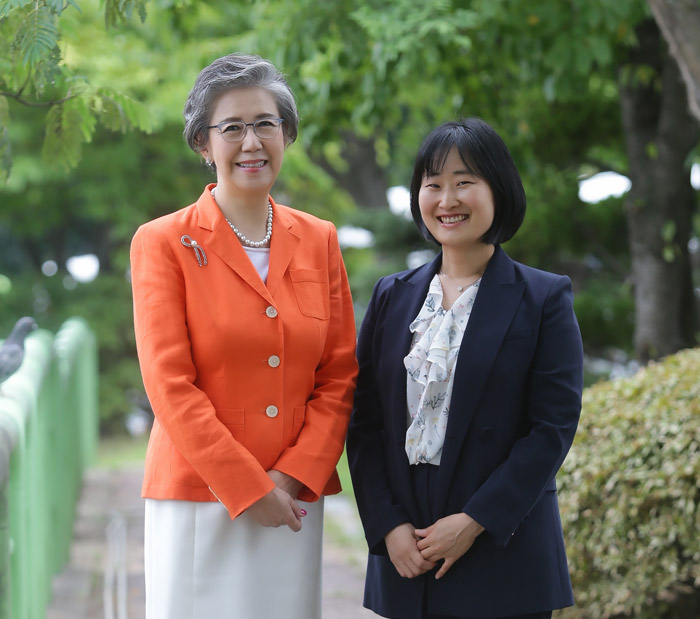Research Stories
Utilization of social capital in establishing a social safety net for children
It is the responsibility of all of us to protect children from all forms of violence
Department of Child Psychology and Education
Prof.
Yanghee Lee
Dr. Sangwon Kim
Social capital refers to potential or actual resources that can be accrued from their embedded relationships, and parents are considered as one of the vital sources from which children can obtain it. Social capital is particularly important in that it can be used to overcome harmful situations faced by children. In the past, social capital had been explored based on the accounts of adults, such as the degree in which parental social capital could be transmitted to children. However, with society's wider acceptance of children as active social agents, children's subjective reports on their social capital have recently gained greater consideration.
Professor Yanghee Lee and Dr. Sangwon Kim (the Department of Child Psychology and Education, College of Social Science) stipulated that when parents are the perpetrators of violence, children may lack social capital. Thus, alternatives sources for social capital in children's immediate environment were identified and explored. This study utilized the responses of 4th graders (N= 2,844) from the Korean Youth Panel, and investigated whether social capital from siblings, friends, teachers, neighbors, and online acquaintances mediated the pathway of parental violence leading to aggression or depression. It was found that social capital obtained from siblings, teachers, and neighbors mediated the pathway between parental violence and aggression or depression, and this was consistent in aggression but not in depression. This finding is significant in that other sources of social capital would be crucial in breaking cycle of violence. Social capital obtained from friends did not have a significant mediating effect. It was further confirmed that continuous monitoring should be accompanied because social capital obtained from online acquaintances can lead to increased levels of aggression or depression.
Professor Lee explained that this study is noteworthy in that it explored the role of other forms of social capital that can compensate for the lack of parental social capital. She added that it is the responsibility of all of us to protect children from all forms of violence, therefore it is essential to actively seek ways to develop and promote children's social capital. To establish a social safety net for children, Dr. Sangwon Kim said that it is necessary to explore various ways to utilize social capital by considering social capital measured both at the individual and the community level.
This study was published in the internationally renowned journal titled Journal of Interpersonal Violence (SSCI, IF=6.144). Professor Lee served as a professor for 30 years and has researched child counseling, play therapy, interventions for children with developmental disabilities, child abuse and neglect, children's rights, and child resilience. She has published more than 100 papers in domestic and international academic journals. She is currently serving as an editorial board member in internationally renowned journals, including Child Abuse & Neglect (SSCI, IF = 3.928), International Journal of Children's Rights (SCOPUS), and others. Also, she served as a Guest editor in Child Abuse & Neglect (2009-2011; 2019-2020) and the International Journal of Children's Rights (2010).


